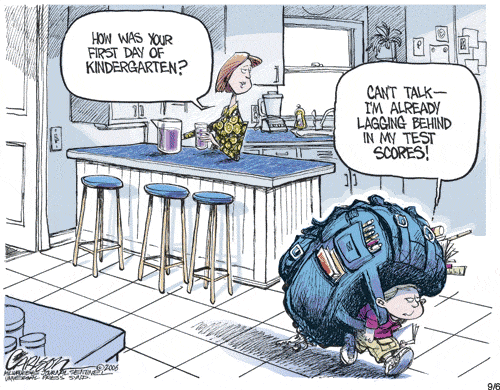Kindergarten Teachers’ Effects on Five Year-Olds’ Futures

I never went to preschool. I also missed being in kindergarten when I went to a Pittsburgh (PA) elementary school in the early 1940s. It was my loss.
Why a loss? Because there is much evidence–both quantitative and qualitative–that what five year-olds learn in kindergarten when strong ties exist between them and their teachers produce short- and long-term effects (e.g., cognitive gains, social behaviors, and psychological benefits) that last into adulthood. In the past few decades, educational researchers and social scientists have fastened upon metrics that seemingly prove that such outcomes have occurred (see hereand here).
More recently, economists have gotten on board with their algorithms and cost-benefit analyses and found that preschool and early childhood school experiences did, indeed, have long-term effects on adult earnings, getting married, raising families, and daily behavior in the community. See here, here, and here. Because economists have accrued outsized influence on U.S. policies in health care, education, government operations, and other sectors, their cost-benefit analyses have helped in building political coalitions supporting
